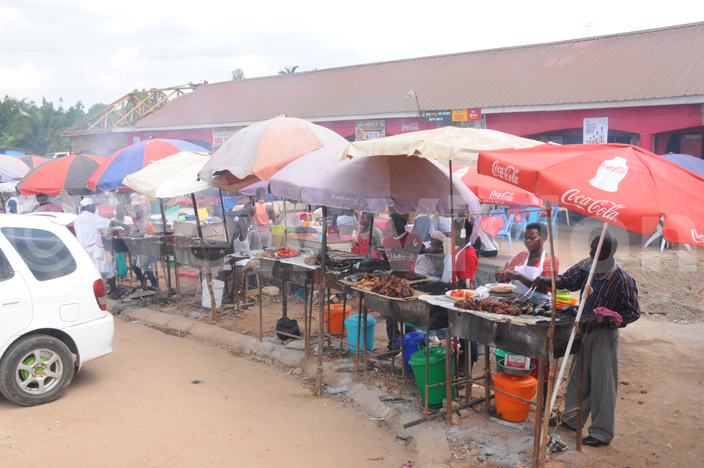Meet the P5 dropout who built a business worth millions
For two weeks he locked up himself in his one bed- roomed house where he used to rent and he wondered how he would look salvage his life with a growing family
Five years ago, 43- year-old Muhamad Ssalongo Kafero was down and almost out, it seemed that his best years were already behind him.
For two weeks he locked up himself in his one bed- roomed house where he used to rent and he wondered how he would look salvage his life with a growing family. This was after he was evicted from his premises by Kampala City Council Authority.
Down and almost out, an idea crept into his mind which turned out to be the software that wired his life back in venturing into yet another business. Armed with nothing by a dream and only shs8500, he ventured into goat roasting business on seven miles on Gayaza Road.

Today the place has become a buzzword among the revelers as "Kumbuzi." Just like all small startups with little or no funding, he build his dream by engaging other who brought energy and value to his business.
Five years later, it has paid off his value for his business is estimated to be worth millions, not forgetting the families that suck their livelihood from his business venture of goat roasting. His success has been attributed to his fearsome reputation of being a hustler.
Born and bred in a poverty stricken family, Kafeero knows quite well what poverty and living on hands to mouth means. He lost his father when he was in primary five and that signaled the end his education. Suddenly, he became a father to his nine siblings and with the help of his mother; Aidah Nabanja.
He started looking for school fees for his siblings. "As the eldest child, the onus was on me to help my mother to take care of my siblings, so I had to look for money making opportunities in order to make ends meet," he recalls.
So in 1992, with the help of his mother he started selling banana juice to nearby trading centers. On a good day he would sell between 2-3 jericans of banana juice, the juice was made by his mother.
On a good day, he would sell more than three Jeri-cans. When the business thrived, so was the proceeds, he bought a used bicycle which he used to transport his business merchandise.
With his personal savings, Kafeero launched himself in another field of selling chicken which also became profitable. It was from the proceeds that he was able to build iron- roofed house for his mother in the village in 1994. With his mother and siblings sheltered, he decided to relocate to Kampala and begin a new life.
"I wanted to see what business opportunities in Kampala hard in store for me," he adds. He teamed up with his maternal uncle; Muhammad Ssemuwemba in Owino and started selling cassava for six years. After that he branched off and established his own business at Kisasi and made a makeshift stall of dealing in agricultural merchandize. Fortunately, the business bloomed and he was able to acquire valuable assets like land. "I was able to buy two acres of land in Nakasuga and 50ft to 100ft in Kitetika in Wakiso District at shs 16.000.000," he says. Sadly from that time all his business investment went downhill.
In 2012, Kafeero was evicted from his working place and business merchandise was confiscated by Kampala City Council authorities. He used to lock himself in one bedroomed house with his family and lament about his loss, then an idea crept into his mind about starting a business of roasting goat.
Kafeero acted on the idea and began what has today turned out to be a viable business. "I started with only shs8500 which I used to buy half kilogram of goat and charcoals that I used to roast. From that time I never looked back as the business flourished," he recalls.
Today, Kafeero supervises a business of over 300 employees and a leases a land one acre of land at shs 75m per a year. Asked how he has been able to turn his life around, he points to hard work and personal sacrifice as the tool behind his success story.